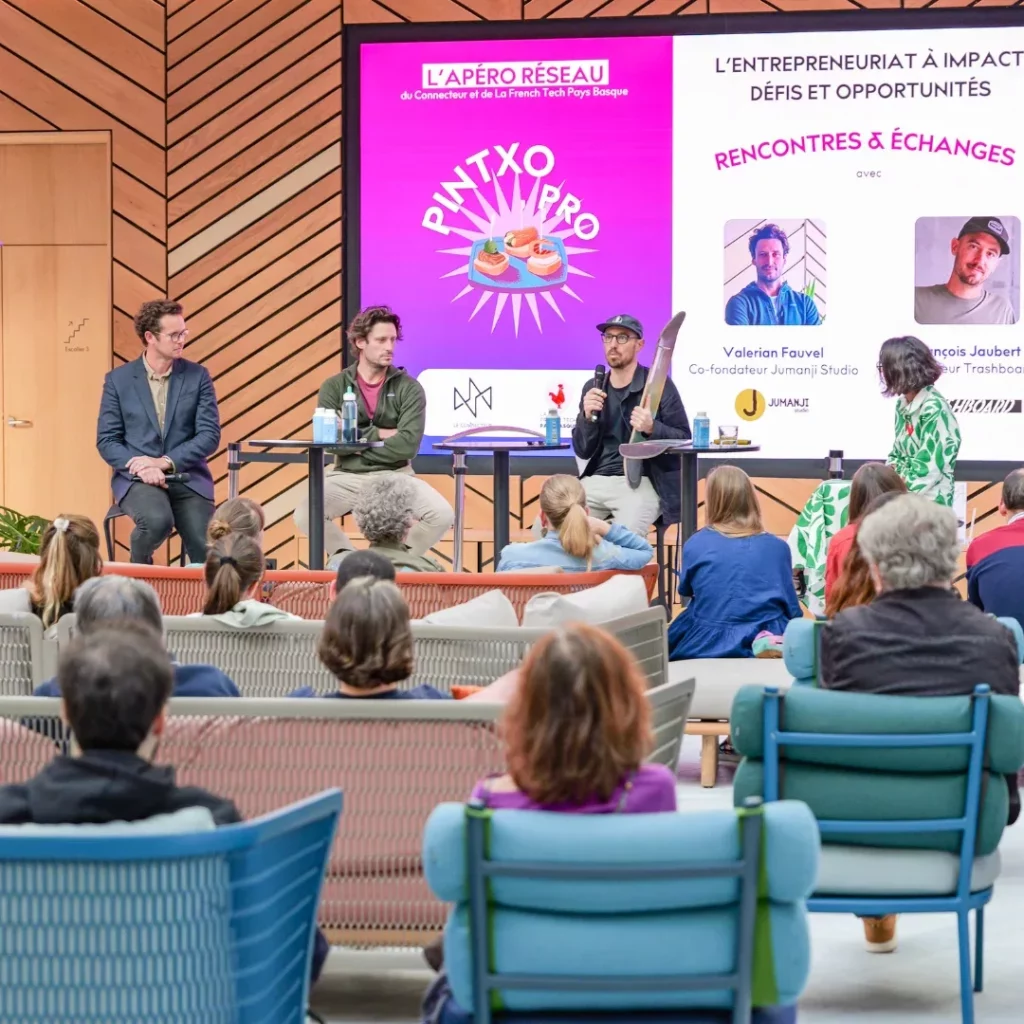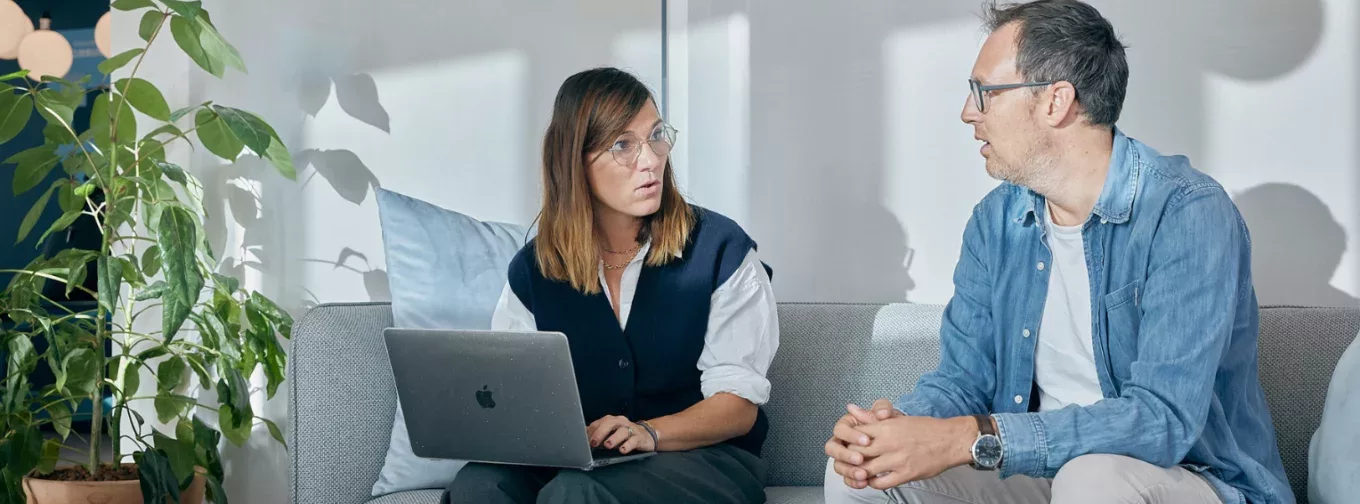When it comes to sustainable development, we note that some companies are still pursuing their frantic race for productivity, while others are developing their vision and, above all, their actions in favor of sustainability, some of which have already been underway for several years. The latter are attempting to make sustainable development compatible with the world of work. Thinking “out of the box” while dealing with the current model and profitability constraints: that’s the challenge.
Elements of reflection, from our perspective as Connecteur, a place that defines itself as an entrepreneurial eco-system.
Sustainability and business: the question of compatibility
In 2015, the UN established the SDG(Sustainable Development Goals) program for the 2030 horizon. It contains 17 goals to “ensure peace and prosperity”. In relation to the world of work, the UN refers in particular to the importance of “promoting sustained, shared and sustainable economic growth, full and productive employment and decent work for all”. Hence the question that springs to mind: can the company exist with a sustainable operation?
Many companies of all sizes and in all sectors are increasingly asking themselves this question in the face of the climate emergency. Even with a lot of good will, it’s not always easy to reverse the trend and change decades of industrial habits and processes. At Le Connecteur, we believe that the important thing is to believe in it, to connect around entrepreneurial projects and, above all, to link action to vision.
Start-ups at the forefront of thinking and innovation
If there’s one type of company where sustainable development is being thought about and developed, it’s start-ups! With their DNA naturally focused on innovation, these companies have taken the issue of the impact of business on the environment head-on. Many of them are already proposing, or have in gestation, actions or products that enable sustainable development to be better integrated into industrial processes. Provided they have the necessary financial backing, their agility can sometimes move the yardsticks on a much larger scale. We’re convinced: improvements come from the field!

As part of the first Pintxo pro open to all at Le Connecteur – Tuesday May 28, 2024 – two companies were invited to discuss the theme of “Impact entrepreneurship: challenges and opportunities”. Co-hosted by French Tech Pays basquethe debate gave the floor to the directors of Jumanji Studio and Trashboard.
- Valerian Fauvel, co-founder of Jumanji Studion and member of Le Connecteur, offers support for sustainable projects and defines his company as “a factory of solutions”. He spoke of his successes with major manufacturers such as Brandt, whom he convinced to join the Homecycle adventure: full-service appliance rental.
- François Jaubert, creator of Trashboard, has designed a viable process for manufacturing skateboards and surfboards from recycled industrial cardboard and composite materials, including Airbus carbon. He talks to us about this unique technology, but also about the moral compass and the need to act that led him to embark on this entrepreneurial venture.
Both shared a commitment and a visceral need to find solutions to the problem of sustainability. From the day they opened their eyes to the ecological reality, they have never stopped wanting to innovate and undertake to change the situation. Their companies have thus become their tools for shaping today’s world differently, in line with their values and their words through concrete action.
Thanks to this meeting, we were able to take a step back together and talk frankly about the possibilities, but also the doubts and obstacles, faced with this colossal challenge of sustainable development that concerns us all. What emerged? That these experiences prove that sustainable development and business can be compatible. There are thousands of approaches of this kind, each with its own contribution to make.
Idea box: including sustainability in the world of work
Sustainability isn’t just about sorting and recycling! It’s about taking responsibility to a whole new level. We’ve put together a few ideas for you to consider.
Changing habits one step at a time
What if we went further than the obvious sorting and recycling of waste within the company? Here are 6 ways in which you can improve the impact of your business day by day:
- Calibrate your energy consumption, with precise settings for energy consumption items (heating, air conditioning, lighting) according to occupancy, seasons and schedules.
- Make the coffee break an eco-responsible moment by replacing disposable crockery with 100% reusable crockery, and installing bean-to-cup coffee machines.
- Use email intelligently: limit large attachments and recipients, avoid signatures with heavy images. Print on double-sided paper and recycled paper, only when really necessary.
- Eat local, organic and responsible food (limit meat and fish) on a regular basis by placing group orders with responsible neighborhood partners or partners with an anti-waste approach like Too Good to Go.
- Implement a responsible purchasing policy, giving priority to the circular economy, for your company’s purchases.
- Reduce the impact of your home <> work commute by using public transport or soft mobility vehicles, or by teleworking regularly.
The ideal solution? An eco-responsible company building! In an ideal world, every building would be eco-responsible. As it happens, Le Connecteur was designed with this in mind, and is a model of its kind in many respects. For example, it produces part of its own energy thanks to photovoltaic cells and panels, and features an intelligent energy regulation system (from lighting that adapts to natural light to timed flushes!).
Focusing on quality of life at work
A sustainable company is also a company that cares about its employees’ well-being in the workplace. Indeed, behind the notion of sustainability lies that of a respectful and humane relationship, and ergonomic workplaces that adapt to the needs of each individual. Because more well-being in the workplace means greater efficiency in projects and a healthier, more stable, more sustainable working environment.
At Le Connecteur, we’re convinced that sustainability also requires the ability to think differently about tomorrow, and to open up new fields of possibility. So get connected!
